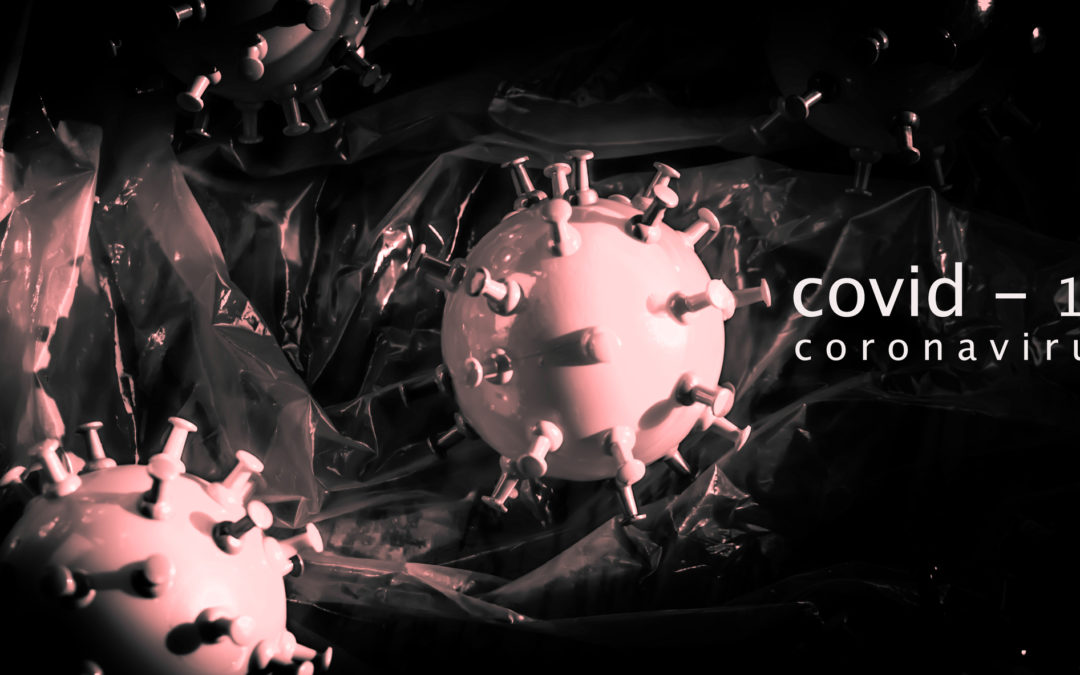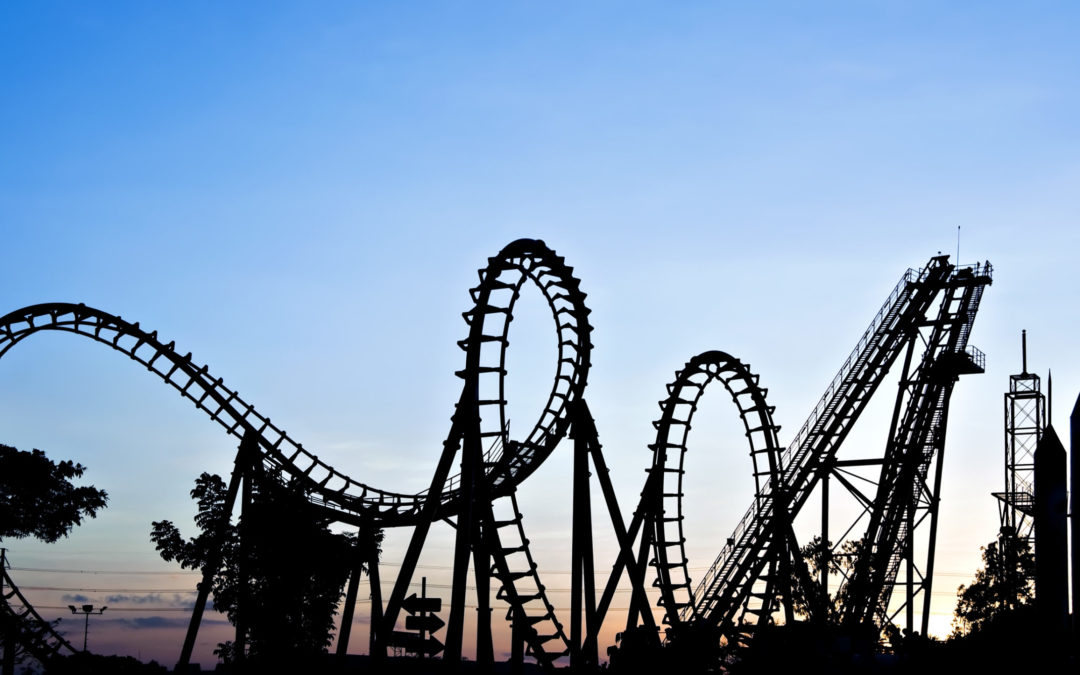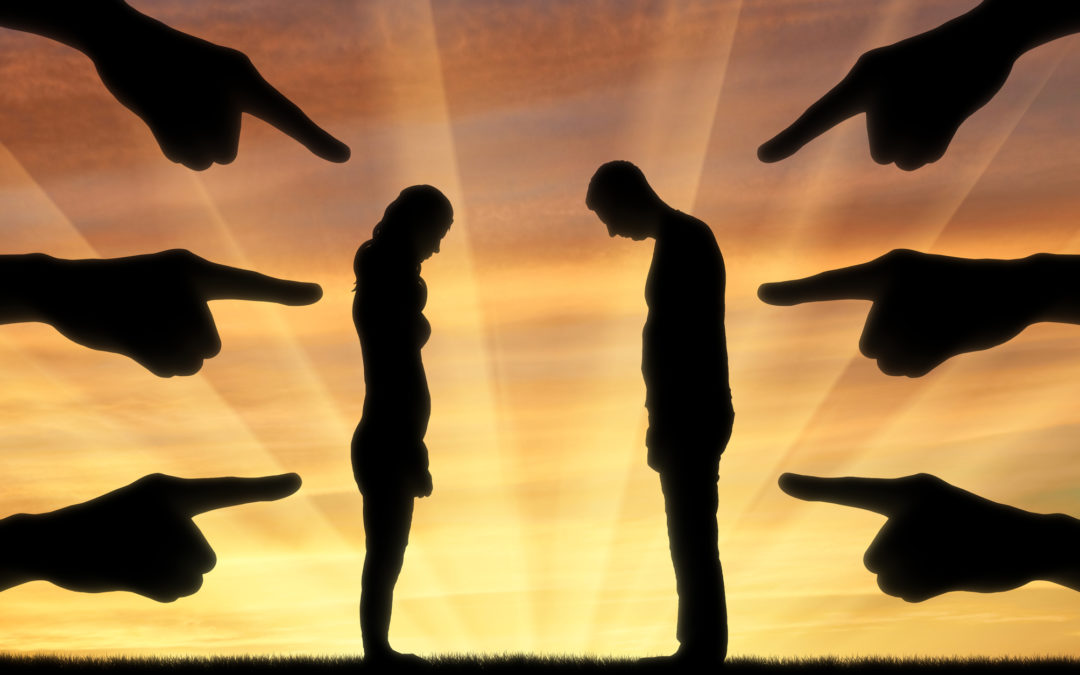
The Futility of the Uncontrollable Life
Over the past two weeks, my productivity has been down. It’s not surprising if you look at what is happening around me right now. My kids are home and I’m supposed to be homeschooling them while I do my job. I am also supposed to be keeping my family virus-free while still figuring out how to get supplies and cook many more meals than I used to. I really am a shameless non-cooking mother. Take-out and dine-in are two of my favorite phrases. And I guess I am supposed to be cleaning more. And I guess I am supposed to be doing more physical activity with my kids since their activities have been cancelled. And I guess I am supposed to get them to wear clothes and brush their teeth and take baths. Sometimes I am doing those things. But I feel so much less productive with my work. Stuff just isn’t getting done. Not surprisingly, my controller is furious and agitated.
But that’s not the only reason my controller is stirred up. Their illusion of control is failing, and they can’t figure out how to put it back together. There is nothing like a catastrophe to highlight the illusion of control. Most of the time, we live in a world that is filled with a fake sense of control. Our controllers keep us calm through their denial that anything can go wrong at any time. And our controllers lose their minds when unexpected things do go wrong. These things have the potential to poke holes in the lie. But when there is a bigger crisis, the illusion of control begins to crumble. And that is overwhelming. It is intense for everyone, but for those with complex trauma, it is retraumatizing. The unpredictable nature of reality brings our trauma front and center. We survived by believing we were in control. And we cannot face the truth without facing our trauma and seeing it for what it really was: uncontrollable.
There’s a reason we have avoided the awareness of just how uncontrollable this life is. When we are stuck in a traumatic childhood, it can bring up despair and hopelessness. It can be life-threatening when we see no way out. So we shove all those horrible feelings under a sense of false control. But each time a new hole is poked in that veil, those emotions show up. And they feel horrible. They terrify the controller who knows they can leave us paralyzed on the couch with no hope of functioning. They can stop us in our tracks. They can inundate us with stories of how hopeless this life is. And unfortunately, they can bring suicidal ideation. Our controllers are so scared of this, they would rather believe in a complete falsehood. They would rather have us running all over town, doing potentially dangerous things to avoid this truth.
But it doesn’t work. The uncontrollable brings futility, despair and hopelessness. It is a flashback. That doesn’t mean that we aren’t currently in a life we can’t control. There are aspects of our experiences we cannot do anything about today. But when we see our only path forward as death, we are back in childhood. When we believe there is absolutely no way out of this, we are back in childhood. When we believe we have no control over ANYTHING, we are back in childhood. When we believe we will be abused like in the past, we are back in childhood. When we believe a lack of control will only bring horrific things, we are back in childhood.
It is important for us to recognize these feelings as a flashback. When we do, we can see that our inner parts are trying to share their triggered emotions about the past. When we can hold space for them without telling ourselves a story about today, we can help them heal and come back to the real story. What’s that story? A pandemic is not something we can control by ourselves. But everyone is in this together and there are things we can do together to help. And for most of us with trauma, we are in less danger in a pandemic than in our childhood homes. That’s sad, but true. So let your inner parts share their futility. Keep poking holes in the illusion of control. And know that together (while physically distanced), we can take reasonable actions to make it through this.
*Note: If you are in physical danger because you are quarantined with an abuser, please know that many DV shelters are staying open. Please call the hotline and get help.

I’m Done
With this global crisis of epic proportions, it is not surprising how much my freedom fighters are triggered right now. My controller keeps trying to take over and spin my mind on every possible problem that could come from this crisis. Not helpful. They are keeping me from my memories at a time when I most need to connect with myself. And the massive display of controller and karma kid behaviors on a societal level is adding to my inner war in what seems to be leading to a perfect storm. So today, I am writing about how I am done. I am done with so many things. And I am hoping this crisis can serve as a wake-up call for how our world lives in a “safety-first” mindset. But we have to see it first.
I am done with panic ruling the world around us. I understand this virus is a threat to survival. But we are not going to survive by focusing on our sole survival as one human being among millions. That isn’t how it’s going to work. If we don’t calm down and stop raiding the toilet paper, we are going to put more people in harm’s way. Panic buying and hoarding is coming from a place of scarcity. There is no faith in this approach to life. And while I know we learned this from very real abuse as children, this approach does not serve us in situations like this. We have to help each other. Our fear is real. But these responses to fear are damaging. And I’m done with this.
I am done with denial. Denial about this crisis is NOT an enlightened view of the situation. It is simply the flip side of the same coin. It is still a safety response learned in childhood. Denying there is a problem is meant to deny the pain inside about the problem. Denying reality is often used against children in an abusive household, but it doesn’t change reality. And talking down to people who are expressing real fear just makes you a part of the problem. It is invalidating and abusive. And I’m done with this.
I am done with hierarchies. I am sick and tired of the hierarchies. Why does an excessive amount of money make someone’s life more valuable? Honestly, it just makes them a hoarder, a hoarder of money. That comes from trauma. They are in survival mode and they hoard money to cover their tremendous fear. Why are they more important? Why are they more deserving of testing? Why are they more deserving of sick leave? They’re not. They never have been. And I’m done with this.
I am done with lies. Everyone is invested in their story. I get it. If they can get everyone to agree with their version of the story, it makes their story right. Or so they think. That’s actually not the case. But everyone wants to try it anyway. The lies aren’t helping anyone. My social media feed is inundated with misinformation and far too much of it is purposefully misleading. Stop it! We must stop sharing this crap! There is no benefit to a bunch of people agreeing with you about something that is wrong. It could even kill people. I am so done with this.
I am not trying to suggest there aren’t amazingly helpful people out there right now. I am not missing the beauty of people doing things for others. People are stepping up in powerful ways. My perspective might be a bit skewed today, but I can see it. It is there. Mr. Rogers said to look for it and we need to look for it. But we also have to get real about fear responses. This crisis is telling us humanity must shift. People need to look at the world through some new lenses. This requires us to look deep inside and see where our behaviors start. What do those fears have to say? Listen to them and make a grounded decision about how to move forward. This is an opportunity to heal on a massive scale. And healing often comes from painful experiences. This is one of those moments. Use it to the fullest. Tell your inner defenders to take a break from their fear frenzy and sit with self in a new way. This is when we learn folks. This is our moment to transform.

Handling the Coronavirus Crisis with C-PTSD
The Coronavirus pandemic can be especially triggering for those of us with complex trauma. There will be constant reminders of our trauma as we try to navigate a world in crisis. Those reminders can bring our childhood beliefs back to the surface. These beliefs were often instilled by our original abusers and live in our unconscious with our unhealed trauma. Here are some examples of what might trigger us.
Scarcity of Supplies and Professional Services
Loss of Control over Self or Space
Invalidation of our Emotional Reaction
Denial of our Reality
In a time of crisis, one of the most important yet difficult things is to get honest about how we are feeling. We are going to default into a trauma response. We might numb our responses and move into panic mode, buying all the supplies and watching the news incessantly. Or we might deny there is a problem to keep the panic at bay. Both are unhealthy, but typical. And they will have an impact on our immunological health. Connecting with self can help us find a balance in our responses to crisis. Here are some steps to try:
Slow down and ground. This doesn’t have to be a monumental experience. You don’t need to spend hours each day grounding unless you want to. Take 5 minutes to connect with the body and slow the mind’s racing. Do this often throughout the day to reconnect with self. Bringing awareness to our thoughts is just as important as bringing focus to the body. Both are needed to fully ground. Take a look at my Facebook live stream about the 3 myths of grounding for more information.
Write from the belief that there will not be enough. Scarcity beliefs come from trauma. There wasn’t enough of what you needed in your childhood because you were not prioritized. In a crisis, this trauma can be triggered. Try writing from beliefs like:
“I will run out of what I need.”
“I won’t be able to get what I need.”
“I won’t survive.”
Write from the belief that something horrible will happen to you. You have spent your entire life waiting for the other shoe to drop. And you used hypervigilance to stay alive by avoiding surprises. Right now, this crisis will trigger hypervigilance. Write from beliefs like:
“This is going to take me out.”
“I can’t control my environment like this.”
“I won’t be prepared for everything.”
Write from the belief that you are being punished. In childhood, we were often blamed for things that were not our fault. In adulthood, we could have a tendency to believe we are being punished when things go wrong. Try writing from beliefs like:
“I am being punished because …”
“I should have known better and done something about this sooner.”
“This is happening because I am bad.”
Write from the fear of being alone. Some of us may leave a traumatic environment with a deep desire to be alone. But some of us may believe that being alone is dangerous because there is no protection. Being alone can also make us uncomfortable because our unhealed trauma can rise to the surface when things slow down. Try writing from these beliefs:
“I am not safe when I am alone.”
“I need someone to protect me.”
“I can’t slow down.”
Write from the fear of being trapped. It is common to come out of childhood trauma with a strong fear of being trapped. When we are restricted from moving freely in our lives, we can experience intense trauma responses. Write from beliefs like:
“I can’t get away.”
“I will be stuck here forever.”
“They are trying to control me.”
Write from your anger. It is important to get real about how you feel about this virus. The virus might feel like another abuser. You might have some tough questions about why the bad people seem to live forever while the good people always get clobbered with bad things. You might even have a few hopes about who the virus takes out. Try writing from beliefs like:
“I hate this shit.”
“I hope it takes out (enter abuser’s name here).”
“I am sick of all the bad things.”
Feel your emotions. You probably grew up in an environment which invalidated your emotional response and denied your reality. The same thing is happening here. There are plenty of people ready to call any response to this virus an overreaction. And there are plenty of people ready to call the non-reactors irresponsible. But take time to hear out how you are really feeling. Self-acceptance and compassion will be incredibly powerful for you right now. You do not need external validation for how you feel. Take time to connect with yourself.
On March 15th, I held a live stream on my Facebook page about our internal processing of the Coronavirus pandemic. Go to this link to build your awareness.

A Message from the Freedom Fighters
Since very early in my life, I have had to live in survival mode. That means, my controller was fully in charge. They made all the decisions in my life and they were all made from a fear-based view of the world. All my decisions were safe decisions. I needed to stay alive and this is what worked. But as I have worked through my memories in recovery, my controller has stepped into a more appropriate and helpful role. And my grounded adult self has come forward to heal my other parts. I am not suggesting I live my entire life in my grounded adult self, but I spend a lot of time there. And I spend a lot of time holding space for the trauma of my inner parts. As you know, the work isn’t fun. But the insight I have gained about my true self has been amazing.
This shift has afforded me new understandings about a group of inner parts I had locked away when I was a child. And for the past several years of my recovery, I have spent time with them. I refer to this group of inner parts as freedom fighters, and they are extremely powerful when they are freed from their inner prison. In their grounded state, they represent a force for authenticity. They bring you back to self and the body, and they end the constant war within. When they are ungrounded, they hold futility, and they will often sabotage the survival strategies of the defenders. This leaves us frustrated and paralyzed in a battle between survival and total defiance. But when we heal the freedom fighters and bring ourselves to a grounded balance, life gets much more tolerable on all fronts.
I have noticed my freedom fighters having a lot of strong reactions to the intense oppression in the world today. My freedom fighters want everyone to be who they were meant to be. And I’ll be honest, they don’t have much tolerance for the inner defenders who are “holding everyone back”. So today, I wanted to give you some advice from my (relatively grounded) freedom fighters so you can move toward your authentic self.
Stop Punishing Yourself. Contrary to what you might think, self-punishment is not very noticeable. It is hard to see it because you have been doing it all your life. Sometimes it comes in the form of expectations that things will go wrong. The controller believes you can only have what you want if you go through hell (again). The karma kid believes you are worthless and anything you really want is out of reach. So you stop yourself from what you really want. You put up barriers to your deepest desires and you don’t even know you are doing it. But you are continuing the very abuse that started in childhood.
Stop Silencing Yourself. How many times per day do you stop yourself from saying what you want to say? Most importantly, what is your reason? You don’t want to upset them. You don’t want to lose their friendship. You don’t want to have to explain yourself. Or maybe, you have just given up. While it is important to use discernment in picking battles, avoiding conflict by silencing yourself can be retraumatizing. You are continuing your abuse by stopping your authentic expression.
Stop Believing the Criticism. This might be internal or external criticism. But the source of all criticism comes from scared people. They might be abusive. They might be living life in fear and wanting to protect you. But when someone tells you that you aren’t good enough or need to tone down your goals in life, that source is not credible. That source is traumatized and fearful about life. They have told you lies and those lies are running your life. And when you believe those lies, you are likely retraumatizing yourself and holding yourself back.
Stop Doing Things the Same Way. I am not trying to be negative, but if the things we have been doing were working, things would be better. The world needs new ways of doing things and it needs them now. If someone (or yourself) is telling you to do it the same way, don’t listen. If someone is using the word “should”, don’t listen. Bring something new. Try something that might change everything. Your defenders will warn you that it will fail. But they don’t really know that. And failure is not nearly as bad as you think. Do it anyway.
Stop Quitting. Your inner defenders were set up to make you quit. It is hard to see because it isn’t consistent. They might be obsessively dedicated to some things. But as soon as you try something new, purposeful or exciting, they will fill your head with all the reasons you should give up. This is a strategy and it works too often. Stick with what you started. Don’t listen to the “just give up” language in your mind (but write from it). It is meant to stop you in your tracks, but you can bring awareness to it and step out of it.
My freedom fighters want to get their message out to the world. There is a way to step out of the fear-based survival strategies you have come to see as normal. You can question them. You can acknowledge they come from our trauma (and other traumatized people). You can detach from them through grounding and expression. And you can take steps to move past them. Watch for how survival is ruling your life. Bring it to your awareness. You are here to do more than survive. Your freedom fighters have another plan for you.

In Defense of Anger
We live in an anger-hating world. This is not surprising. Anger has been labeled as dangerous. It has been labeled as dangerous by angry people. They know deep down inside that their anger drives them to do bad things, to treat people in bad ways. They know they need to block anger so others can’t retaliate. They know their power requires others to stay in fear and suppress their anger. So they label anger as dangerous. And they call other people angry in condescending ways. Instilling the fear of anger in others becomes a stealth act of oppression.
It is hard to argue with these labels. We can see the damage from anger. We can see the abuses. We can see the violence. We can see the war. It is easy to fall for the rhetoric and shame ourselves for the anger we know lives deep within us. But we are missing an important and fundamental truth. There are two types of anger. There is grounded and ungrounded anger. And the anger we have within us can express in either way. There is not an external reason that makes it grounded or ungrounded. The difference is in our acceptance of it.
Yes. I said it. Our anger will be ungrounded as long as we don’t accept it. Why? We will continually shove it down below the surface and ignore it. And as we do this, we will keep it in our unconscious where it will have power over our lives. We will attract angry people and anger-fueled situations which recreate what we have not healed. We will try to shove it under the surface which is akin to simultaneously pushing 100 tennis balls down below the water. It doesn’t work. When the balls get loose, they come up with a vengeance. When this is anger, it is ungrounded and it can definitely be dangerous.
There aren’t very many people accepting their anger in the world. Unfortunately, that means we rarely meet grounded anger in our lives. When we do, we might not recognize it as anger at all. It looks quite different. But if we can allow a channel of expression for our anger, we can ground it over time. And when we do, we can reap the many rewards of having access to our anger in a grounded way. What are those rewards? Here are some beautiful things our grounded anger can bring us.
Anger brings truth. Our anger is hiding behind the stories we told ourselves to get through our trauma. Those stories tell us that it was our fault and we can’t blame anyone else. They tell us we are sensitive and overreacting. As we allow our anger forward, we can embrace the truth about how we were mistreated. We can put the blame where it belongs.
Anger brings self-trust. When we are angry at the right people, we can stop being angry at self. And when we stop being angry at self, we can trust ourselves more and more. Eventually, we can trust ourselves more than the others who have been controlling and lying. This allows our intuition to step forward and from this place, we can live our best lives.
Anger brings boundaries. When we trust ourselves, we can set boundaries with others. We become less concerned with how we are viewed by others and we respect ourselves more. We stop making our decisions based on how others feel and put ourselves back in the driver’s seat of our own lives. This empowers us to live our purpose and help others in more effective ways.
Anger brings relief. When we stop walking the line between the requirements of others, we can finally breathe a sigh of relief. If we aren’t answering to everyone around us, life gets simpler and less overwhelming. It gives us more room to consider what we want because we are not constantly spinning about what everyone else thinks.
Anger brings safety. When we allow anger, we set boundaries with the people who need them. We also put up walls when they are necessary. We stop bringing the ungrounded anger into our space too. And our truth helps us connect with our intuition about dangerous situations and people. We are much more likely to find safety by accepting our anger instead of suppressing it.
Anger brings change. From a place of acceptance and safety comes change. We get to say, “Enough is enough.” We become firm in our resolution that we aren’t going to keep living under the thumb of others and we fight for what is right. This is scary change to the oppressors, but it is the change we are here to create.
When we allow and accept our anger, we can process the past new ways. We can trust ourselves on a deep level and come to understand our truth. We can find our boundaries and stop living for the oppressive people who were running our lives before. When we do this, we can make decisions that keep us safer. When we are safe, we can make changes to our lives and the world. This is what the oppressors don’t want. They don’t want change because they are in charge. And they don’t want us to reveal their secrets. So we must embrace and ground our anger. As we do, we will find a new way of living. Our anger will bring us to freedom.

Healing through Relationships: What Works and What Doesn’t
Relationships after trauma can feel like a mine field. There is no telling where the next explosion will come from. And our emotional responses to relationship patterns can be so intense, it feels impossible to unravel. But we keep going back to relationships. That makes sense. We are social beings. We are meant to be in relationship with others. We are meant to love and be loved. Without relationship, we are lonely. And that loneliness builds as life progresses without real connection. The heart breaks through isolation too.
While this may be the most obvious drive toward relationship, it isn’t the only one. There are plenty of ungrounded reasons we move toward relationship before we are healed. First, the healing community pushes us towards relationship. How many times have you heard that we can only heal in relationship? I have heard it often in my journey. With that constant message, our deep desire to heal will keep pushing us into relationship. But there is another reason we continuously move toward relationship. We want someone to take away our pain. The translation to the ungrounded internal and external messages becomes: “When I find the right person, they will heal me.” In the end, this is a recipe for relationship disaster, but we don’t know it.
In reality, relationships aren’t always the right step in our healing path. When we grow up with complex trauma, we grow up with relational trauma. And if we experience enough relational trauma, the unconscious is overflowing with beliefs about relationship. As you might imagine, these beliefs are not the good kind. And they will unfortunately lead us into traumatic relational patterns whether we know it or not. Many times, we don’t know it. With these patterns living outside our awareness, relationships will not help us heal. We will move into our dissociative patterns and act from our unconscious parts. Only when the relationship begins to fall apart will we notice what happened. This could be enough to push us toward healing, but it can push us toward shutting down instead. It comes with a heavy emotional price, and retraumatization is extremely common.
What can we do to bring in better relational patterns? How can we break through the unconscious cycle to begin using relationships to heal? Let’s look at three ways we can bring more discernment to relational healing.
We need to demote others from savior to mirror. After complex trauma, we all have young parts who are looking for a savior. They have been unable to feel their pain because of strong defenses so they need someone to break the cycle for us. They need help and our internal system has made it clear that “self” is not going to provide it. But when we begin to heal our trauma, we can open up to another way of seeing things. We can make “saving” an inside job. And we can start to use others as mirrors. How? We can watch our interactions with others for signs of our patterns and what we need to heal. The more triggered we are, the more the pattern is familiar.
We must bring awareness to our patterns. This is much easier said than done. But as we connect with our unconscious, we will become more informed about how it is manifesting. Once we understand our patterns, we will be able to set boundaries (or put up walls) with the people around us. This will help us to break the patterns and move out of the relational traumas we have been inundated with. If we don’t bring awareness to our patterns, we will repeat them without knowing it. And this is when relationships are less likely to help in our healing.
We need to find balance in how we heal in relationship. As I mentioned earlier, there is a huge difference between a relationship where we dissociate into our old patterns and a relationship where we are aware of patterns but making changes. To get to the latter, we need to heal enough in isolation to be able to listen and trust self when something isn’t right. Traumatic childhoods create blind spots. Those blind spots exist because we learned to tell ourselves a story to cope with our inescapable trauma. Those stories might say it is our fault or it wasn’t that bad. When we heal in isolation before trying out a relationship, we find our blind spots so they won’t catch us off guard. Using isolation and relationship in a balanced way can help us heal on a deep level.
I recently had a relationship pattern play out in my adult life. It was a betrayal and it really stung. It was so blatant that I have even laughed about the ridiculous nature of it. It was NOT subtle. But I guess I was a little obtuse. My little love seeker wanted my patterns to be over. But as I look back at the behaviors, it wasn’t surprising. There were signs. I saw them. I even took some precautions to protect myself more recently. It still sucks though. There is a part of me who is wondering if my relationships will ever be “okay”. Will the patterns ever end? When will the trauma stop impacting me once and for all? But I also know this one didn’t impact me the way they used to. I see so much more than I did. I trust myself more. I listen to myself more. And you better believe there won’t be a second betrayal. So don’t give up. Keep working on that balance. And join us in March in Survivor’s Guide for Life as we explore how to break trauma patterns through relationships.

The Convenient Solution
I watched Troop Zero the other night. At the end, I cried and cried. I cried more than I normally do. I’m not a crier. I never felt safe enough to cry. I did love the story. It was a great movie. The main character was a little girl in a very difficult circumstance. Her mother had died. She had a father who had a big heart but struggled to make money. And she hitched her star to a woman who was going to walk away to attend law school. She was a misfit, a loner, but by the end of the movie, she had found a band of friends who were willing to be vulnerable and consider how life could be different.
It was an amazing movie. But my inner children were screaming. It was the “happy” ending they had always wanted and never found. To some, her poverty and her childhood without a mother would have been heartbreaking. To me, her life would have been everything. Why? Her pain was measurable. Our society has standards for what qualifies as pain and she falls right into our favorite story of pain. There are no secrets in her story. She was poor. She was motherless. That’s awful. We can give her a scholarship and a really nice grief camp and feel better about ourselves. We can watch her make friends with the other “less than perfect” people and feel like she’s found her place. We can tell her story and her “happy” ending because we can feel better.
But what about the rest of us? What about those of us with secrets? What happens when we would give anything to have a dead parent? What happens when we would rather be homeless than spend one more night in our hellish middle-income home? What happens when we can’t talk about the horrific abuse from our parents? We can’t talk about it because our parents are still alive and we should be grateful. We can’t talk about it because our families weren’t destitute and we should be happy for all we had. We can’t talk about it because it is stigmatized and nobody wants to hear about it.
So we suffer in silence. And we hope for any friend who isn’t an animal or an inanimate object. We hope for one person who would be there some of the time. We wouldn’t even care how faulty they were. Instead, we are alone because nobody wants to take the time to figure out how to save us. We are too complicated. We don’t fit the mold. We can’t just be saved. We are the dirty little secrets of the world.
I wish my parents had died. I know that sounds awful, but I do. I wish I could have had those Troop Zero outcasts as my friends. I wish I had a sense that one person cared about me at all. I wish I had one adult look me in the face like they gave a shit what I had to say. But that wasn’t my life. Everyone just looked at my typical life on the outside and ignored the hundreds of red flags because that was convenient for them. I was dissociating. I was exploding. I was bullied by everyone. But it was so much easier to look the other way.
In the movie, the main character was a bed-wetter. She was teased and bullied for it. But she started to wet the bed when her mother died. When I got a hold of my medical records, I found out I was a bed wetter too. When I was three, I was wetting the bed. You may be wondering why I wasn’t wearing a diaper at night when I was three. That’s a good question. I would love an answer to that question. But I also had chronic UTI’s. My mother would tell the nurses they came from my bed wetting. My mother said I got UTI’s from wetting the bed and nobody thought that was strange. Let’s face it! They thought it was strange! But they didn’t care. I had a mother. I had a father. They had some money. I wore a London Fog raincoat. I must have been fine. I didn’t grow up in a trailer. So I was fine. There were no programs for me. There were no social workers knocking on the door (except for that one brief mistake which was finally covered up). Nobody gave a shit. My story doesn’t make the movies. Nobody wants to watch my story on the big screen. Our society only wants the solvable problems. They want the low-hanging fruit.
How many kids have to watch the world feel sorry for the kids with the acceptable problems while drowning in their own complex trauma? I don’t know. But until we wake up and start focusing on the abusive, but very much alive parents, we aren’t going to solve this massive world crisis we are faced with. Dead parents and poverty are huge risk factors for children to face abuse. We have to acknowledge that. But abuse is happening everywhere and the kids who experience it are feeling completely alone. When are we going to do something about it?

The Roller Coaster of Recovery
When we start our recovery journey, our controllers have big plans. We are going to find the right approach and helper the first time. We are going to find the shortest distance between point A and point B. We are going to work hard because we are good at that. We are going to figure it out. It won’t be messy or emotional. We will travel a linear path in one direction. We will finish recovery as quickly as possible and then our real life will start. That all sounds great. It won’t be much different than a college degree. All we need is a syllabus and we are good to go.
But if you are reading my blog, you know this is not how recovery works. You also know how loud the controller can get when their plans don’t work out. When they realize recovery is a messy struggle through the muck and the yuck of a traumatic past, they will fill our heads with huge resistance. It will probably sound like this:
“It has to be easier than this. l need to find a different way.”
“Other people don’t have to work this hard.”
“It shouldn’t take this long.”
“I’m not doing this right.”
“I must be backsliding. I should feel better by now.”
“There must be something wrong with me to feel this bad.”
It is so easy to believe. In recovery, every day can feel different. One day might feel great and the next day might feel horrible. Our other inner parts will tell tales of punishment and unworthiness, but this is recovery. This is how it works. Recovery is incredibly difficult to interpret. The stages we go through are not easily explained. This is why I love parts work. We can make sense out of almost anything by using parts work as a foundation for our understanding. Let’s take a look at some of the phases of recovery and what is actually happening.
Anxiety. When anxiety or panic hits, we are defending against something trying to come to the surface. This is often triggered by something similar to the past, but it doesn’t have to be. It can come out of nowhere too. But no matter what is happening in the external world, anxiety is an attempt to block an internal response. This response could be fear, anger, futility, shame or grief from an inner part. But anxiety is the interaction with our defenses trying to push it away. When we feel anxiety, it means a part is trying to communicate with us and being blocked. In those moments, try to write from the parts who don’t want you to feel anything.
Depression. When depression comes, we have a part sharing futility with us. Depression will often show up when we have decided to do something new and risky or have just done it. It can also be a response to a life pattern which won’t stop repeating. It can feel like sabotage, but it is also an invitation to release the futility and hopelessness so we can do something new. Try writing from the part who is sharing how hopeless their childhood was and how it will never change.
Manic Behavior. Manic behavior can show up in many ways. It can feel like extreme happiness. It can look like an inability to stop moving or quick shifts in direction or focus. But it is a sign that we are not grounded. It is a sign that the controller is attempting to keep us busy in the mind and the external world to block new information from coming forward. These experiences are invitations to slow down and ground into the body. This might bring anxiety and/or depression forward, but you can write from those to discover what is trying to come forward.
Forgetfulness, Fuzzy Brain and/or Numbness. You may already know what I am going to say here. But these are all signs of dissociation. Dissociation is a process meant to block us from our traumatic reality: the story and the emotions. It is deployed by the controller when things are getting a bit too close to the surface. Dissociation blocks many body manifestations including other defenses. It is a first-line defense. And the only way to battle dissociation is with small, repeating bits of grounding. This will help rewire your tendency to leave the body and let you come back your truth. When you write from dissociation, it will almost always sound like a controller trying to block progress and keep you focused outside of self.
These stages of recovery can come up many times in a day, week, month or lifetime. They can show up in any order at any time. If we can avoid the controller’s language about the “backslide”, we can learn to see them for what they are. They are signs. They are telling us that information lives right under the surface. If we stop and listen and express from our defenses, we might just see the truth that is desperately trying to heal us. Allow them to be your messengers instead of roadblocks. And you will see your recovery process accelerate and deepen. This is how we heal with parts work.

The Toll of Toxic Shame
Toxic shame is one of the most detrimental epidemics in a world filled with childhood trauma. But it isn’t easy to see. It is often heavily defended by our dissociation, anger and futility. It is hidden under our defenses like anxiety, depression and addiction. Even when we are in touch with it, we aren’t aware of exactly what it is because we don’t know what it looks like. We just know that it feels awful and our first instinct is to run from it. It is more confusing because the mind works so hard to cover it up. We intellectually understand that child abuse is not the victim’s fault. We assume there is nothing to heal since we already know it wasn’t our fault. But we are missing the shame that lives in the unconscious beliefs. And unfortunately, those are the most powerful when it comes to our life’s manifestations. So let’s talk about what we might be holding under the surface of our conscious mind because we can’t heal it if we can’t see it.
You were not supposed to handle things like an adult when you were 8, 13 or 16. Abusers have a tendency to parentify us. They will ask us to do impossible, age-inappropriate tasks and shame us when we inevitably cannot. So we begin to see ourselves as not good enough, stupid or incompetent. In reality, we were never supposed to be able to do that task. Many parentified survivors feel paralyzed to take any risks or try anything new. We don’t think we have what it takes to succeed and we don’t want to be shamed if we fail. But when we can uncover this hidden traumatic shame, it can help us let go of these fears.
Your body did not betray you when it responded to sexual abuse. I will use some intense language here because I don’t like saying this lightly. We often hold shame about the way the body responded to sexual abuse. But in reality, it was not wrong. When the body experienced any kind of arousal during rape or sexual abuse, it is protecting us from damage. It is doing what it needs to do. It is not an indication that we are enjoying rape. Abusers will tell us this to shame us, but it is never true. If the body gets pregnant, that is also not a betrayal or our fault. The rapist is responsible for getting their victim pregnant. That’s it. There is no gray area here. If the body miscarries from the tremendous stress we are under or from physical abuse, this is also not the body’s fault. This is a natural response to traumatic stress and abuse. When we see these beliefs and stop blaming the body, our relationship with self shifts dramatically.
The behaviors you have picked up to keep yourself alive are not an indicator that something is wrong with you. We often find ourselves taking actions that we are not proud of. This could be in the form of addictions, isolating behaviors and abusive actions. While we can never excuse behaviors that hurt others, we must acknowledge that they were an understandable result of what we went through. If we are swimming in regret, we won’t heal. We need to take responsibility. But then we need to give ourselves some compassion and let ourselves heal. That is the only way to ensure the cycle stops with us.
You were not old enough to stop your abuse or the abuse of any other children around you. We often believe there was a time when we should have been able to stop it but didn’t. We blame ourselves because abuse happened to us or others. But the responsibility for the abuse lies with the adults. As children, we did not have the resources to stop what was happening. We need to take that responsibility off our young shoulders. It was not possible for us to stop anything.
If you did not stop abuse in your teens after spending an entire childhood dissociating from it, you were not the problem. If we didn’t stop abuse when we were older, it does not mean we liked it, wanted it or were too weak to stop it. It means we were primed for it. We were prepped for it. Our abusers knew exactly how to set up our defenses so we would immediately dissociate when we were older. We were taught that “no” was unacceptable and that there was no help available. We learned helplessness so we defaulted to the only thing left. We only had one option in childhood and that included the later years.
So how do we stop the shame that is holding us back in our adult lives? First, we have to see it. It helps to search for the beliefs I have listed above. It can also help to watch the mind chatter for signs of regret. If we are obsessing over past experiences, what we could have said, or actions we could have taken, there is shame beneath the surface driving our thoughts. If we feel angry and we are suddenly swimming in regret, we are using shame to hold ourselves back from our healing. When that happens, take the second step and write from the shame itself. Write from the self-loathing beliefs that spin beneath the surface and drive everything. As you honor your inner parts who feel shame and let them express, you will come to holistically understand the truth. You are not to blame for what has happened to you in any way. And you never were.

Reigniting Joy
My trauma led me to understand emotions in a one-dimensional way: “bad”. They do come in two forms of “bad” though. There are emotions that are a bit uncomfortable, but tolerable. I can power through them and still function even if I am exhausted at the end of the day. This has been my norm for many years. And there are emotions that are debilitating. These are my controller’s worst nightmare. They make productivity impossible. They leave me stuck in bed or writing like crazy for some kind of release. Nothing else gets done or at least not well. Dinner is going to be pizza delivery on those days.
So when I consider that emotions can be “good”, it is hard to comprehend. To me, feeling “good” means feeling successfully numb. This has always been my goal in life. If I feel nothing, I feel good. This is my controller state and I have come to be very comfortable in this place. That is why it is so hard for survivors to feel. We live in numb. And numb feels safe. The idea that there can be joy is utterly ridiculous to many of us. If we “feel” joy, it is very often a mask because we have to behave a certain way for a particular event. If we feel real joy, it is often a fleeting experience that can’t be sustained. So the idea of being joyful can elicit a roll of the eyes.
But what if joy is a real thing for everyone? What if it can even exist for those of us with the worst trauma? But let’s take it further. What if it already does? What if joy isn’t an emotion so much as it is the essence of who we are? I have to admit, I think a lot. I am always considering possibilities. But I can’t let go of the idea that we understand joy wrong. We search for it. We make a “decision” to feel it. We put on a mask to pretend we have it. But what if our search for joy is our search for self. Maybe joy isn’t missing. Maybe it is the self. There is good news and bad news with this idea. This means joy exists for every person. And it means we can get back to it. But it also means it won’t be an easy journey. Coming back to self is our very reason for existence. It is going to be a complicated journey.
Contrary to popular belief, we should not be looking for joy. We need to be looking for what resists the joy within us. We need to track down the blocks to the joy. They sit in the way of our truest expression of self like a dam in a river. As we honor and express from the resistance, our ability to hold our joy will increase. Here are some of the most common resistance points to our joy.
The controller says joy is dangerous. The controller has developed survival skills in the midst of their traumatic experiences. And those survival skills include hypervigilance. When we are truly embodying our joy and true self, we cannot maintain hypervigilance and a manic mind. We can be present OR we can be hypervigilant. So joy feel dangerous. If we are feeling joy, we cannot be prepared for the dangers the world will throw at us. And this is a huge problem for the controller. Try writing from: “I cannot let my guard down.”
The karma kid says we are not worthy of joy. We have grown up in a world where our own needs, desires and preferences have been denied. We learned that we didn’t matter. And if we ever did consider what we wanted, it might have been labeled as selfish. So the karma kid will tell us we must uphold our role of supporting others to avoid punishment. We must understand our worthiness. There are things others can have and we can’t. Happiness is not for people like us. This is one of the most significant blocks to joy. Try writing from: “I am not worthy of feeling joy.”
The freedom fighters say it is impossible to reach. The freedom fighters have been trying for a lifetime to bring you closer to the authentic self. They want to experience joy, but along the way, they were thwarted in every possible way. They were stopped by society and their standards. They were thwarted by jealous family members. They were blocked by organizations developed to push fearful perspectives about the world. And as we grow up, the internalized beliefs from these sources continue to block the freedom fighters. And they feel hopeless about continuing this journey. Try writing from: “It is pointless to keep trying because of others.”
As you continue to express from your resistance and the evidence your parts carry, you will start to see small openings to that true self. You will have snippets of joy showing up in your life. It won’t happen when you think it will. It won’t happen when you are doing something new and amazing. Those are the moments when the resistance can be intense. Those are the moments when fear is high. It will be in moments which seem irrelevant. You will be sitting in a park or taking a shower or walking the dog and you will feel it for a fleeting moment. It will catch you off guard and motivate you at the same time. And that will build. One day, you might hear from your inner children as they ask if it is really possible to feel joy. Tell them yes. The answer is yes.
Come join us in Survivor’s Guide for February as we discuss reignite joy.

